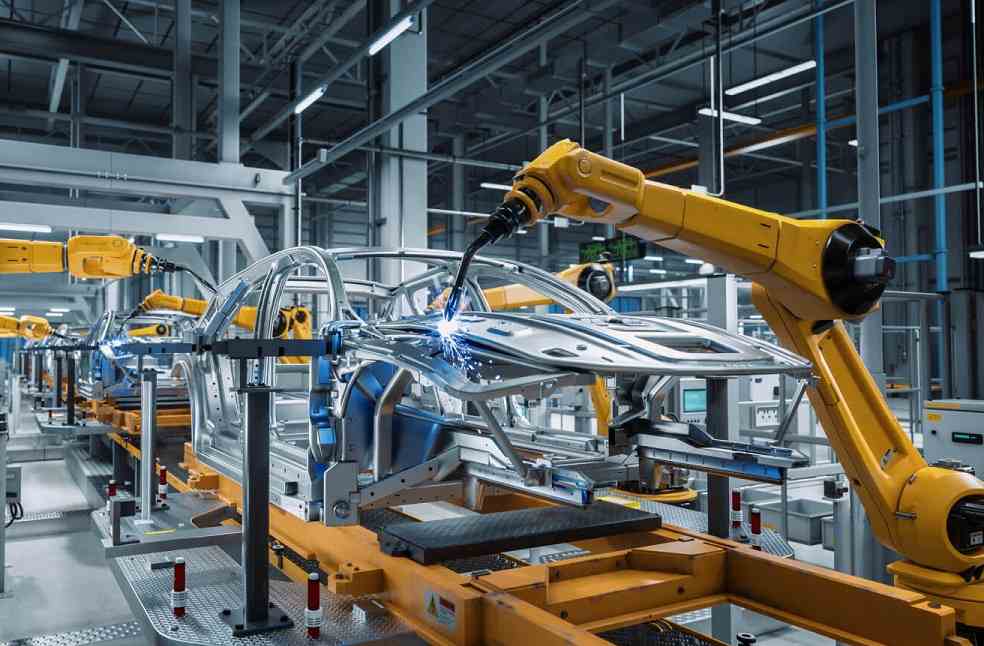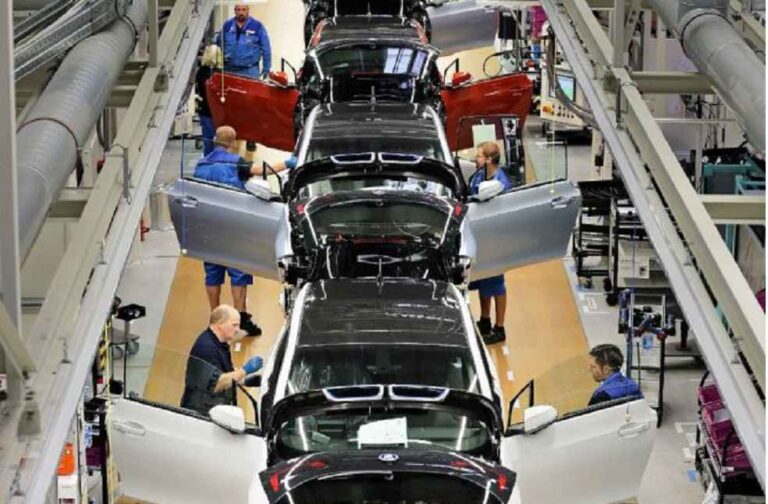The UK hit its lowest car production levels in over seven decades last month, as industry experts attributed the decline to the disruptive effects of Trump tariffs and the Easter holiday. Analysts have also raised concerns about an ongoing ‘low-volume crisis’ in the sector, emphasizing the challenges facing the country’s automotive industry.
In April, car production in the UK fell to 59,203 vehicles, marking a 16% decline compared to the same period last year. This is the lowest output recorded for April since 1952, aside from 2020, when manufacturing was virtually halted due to Covid-19 restrictions.
The Society for Motor Manufacturers and Traders (SMMT) noted that the transition from petrol-powered vehicles to electric models has temporarily impacted production levels. However, the organization highlighted that recent trade agreements with the U.S., EU, and India could support growth in future output.

SMMT reported a 10.1% decline in car production for export, attributing the drop to weakened demand from the UK’s primary overseas markets—the U.S. and EU. The organization also stressed that total vehicle output in the UK for the first four months of the year had reached its lowest level since 2009.
Meanwhile, Autotrader’s share price dropped 12% on Thursday morning, despite a 5% increase in sales, as the company cautioned about economic uncertainties. According to the SMMT, car production for the UK market in April declined by 3.3% compared to last year.

In April, the UK revealed its intention to ease electric vehicle sales targets and lower penalties for cars failing to meet specific emissions criteria.
Over recent years, automakers like Honda and Ford have closed manufacturing facilities in the UK. Meanwhile, Stellantis cautioned last year that it might need to suspend UK production due to uncertainties surrounding the government’s electric vehicle policies.
GENERAL | Momenta AI Powers Over 130 Models; Robotaxi Coming in 2026





